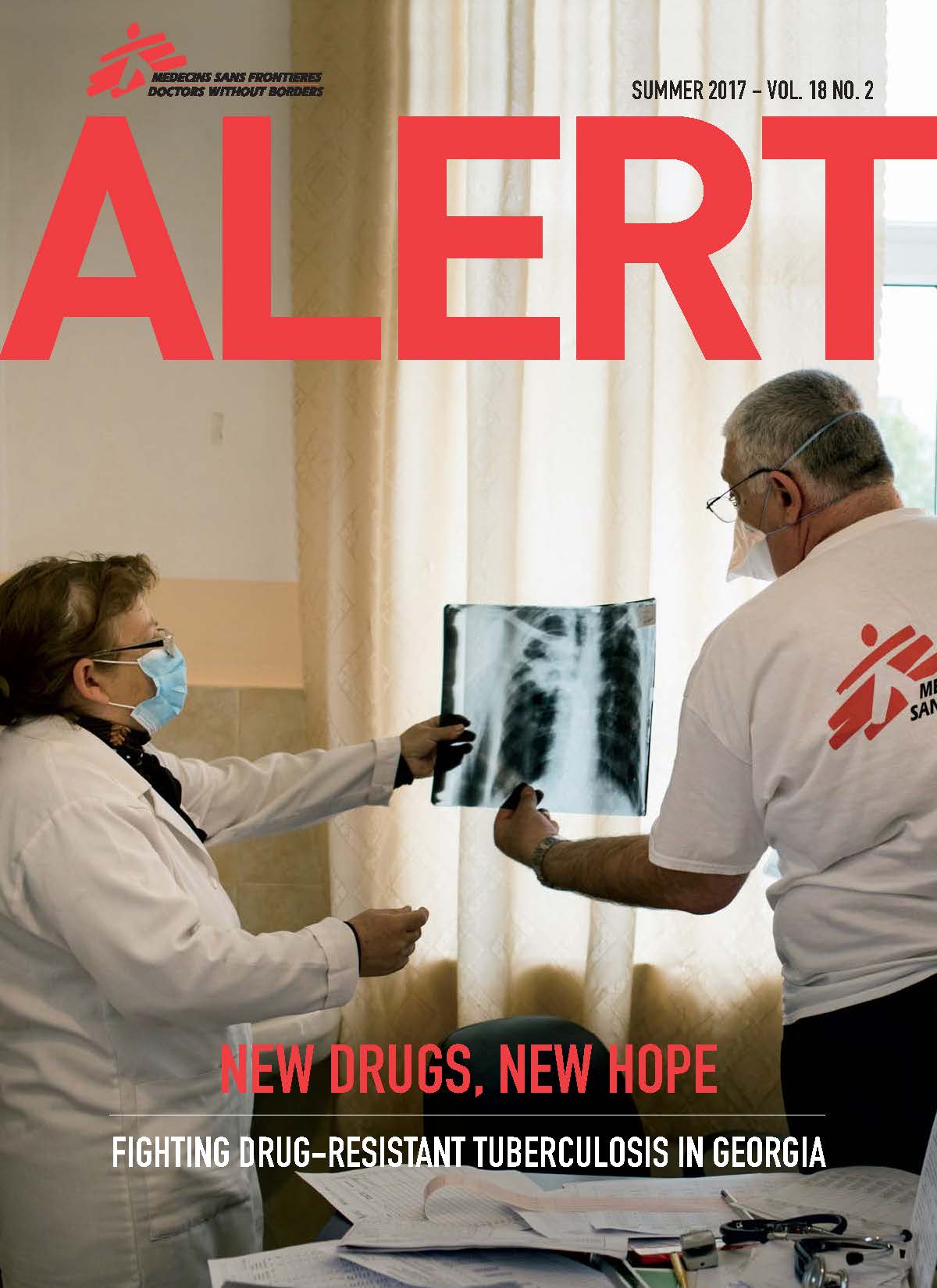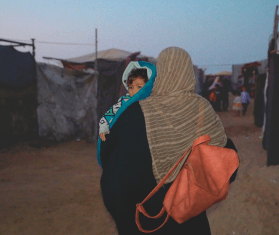
Tuberculosis (TB) killed 1.8 million people last year, overtaking HIV/AIDS as the world's deadliest infectious disease. Another nine million people suffer from TB. The emergence of drug-resistant TB (DR-TB) presents even greater challenges, yet governments and pharmaceutical corporations worldwide systematically fail to make adequate investments in research and development to tackle these problems. There’s hardly any financial incentive to do so, with most of the TB burden in developing countries.
MSF is among the largest non-governmental providers of TB care in the world. We supported more than 20,000 patients on treatment in 2016—including more than 2,000 patients fighting DR-TB. We run 24 projects to treat the disease, in places from Swaziland to Tajikistan.
In this issue, you’ll get a rare look at the stories of MSF patients and staff fighting DR-TB in Georgia, in the heart of the Caucasus. After the collapse of the Soviet Union, TB resurfaced as a major threat to public health in the region—and Georgia is struggling to cope with a particularly high incidence of drug-resistant TB. Treatment options for people with DR-TB have ranged from bad to worse, often involving lengthy, expensive, and toxic drug regimens with no guarantee of success. MSF is working on a pioneering initiative with the Georgian health ministry to explore new treatment options for DR-TB using bedaquiline and delamanid, the first new tuberculosis drugs developed in nearly 50 years.
MSF’s project in Georgia is part of a larger initiative to “endTB” (Expand New Drug markets for TB), an international framework supported by Unitaid, an international organization that invests in new ways to prevent, diagnose, and treat HIV/AIDS, TB, and malaria. EndTB aims to find more effective and less toxic treatments for TB. Partners in the initiative plan to use bedaquiline and delamanid to treat 2,600 patients across 15 countries and collect vitally important data on the results. MSF is also involved in a separate international clinical research project called TB-PRACTECAL, which seeks to develop alternative regimens that will cure all forms of DR-TB within six months.
We are also at the forefront of efforts to provide more decentralized and community-based models of care, in some cases based on successful systems used for HIV treatment.
MSF advocates with governments, corporations, and multilateral institutions to push for more concerted action to fight tuberculosis. We are already gearing up for the 2018 UN High Level Meeting on TB, where we will push for policy changes that could help millions of TB patients to secure better treatment and a better chance to survive.
Finally, we are proud to bring you the first issue of a fully redesigned Alert in a new format, intended to better showcase stories from our staff and patients while also significantly reducing print costs. We are always looking for cost-effective solutions in order to devote more resources to our medical projects around the world. As always, thank you for supporting our essential work.
Sincerely,
JOHN P. LAWRENCE, MD
President, MSF-USA Board of Directors




